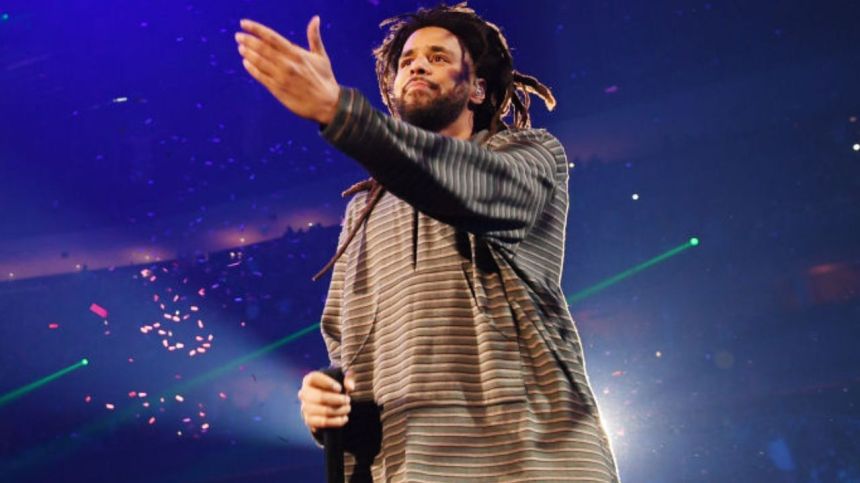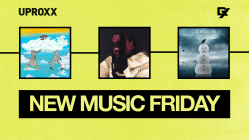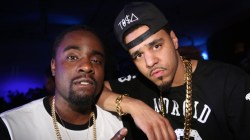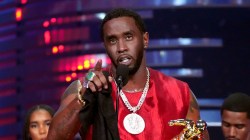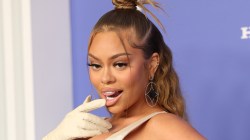J. Cole has revealed how much he charges artists to get him featured on their songs — and, as it turns out, he does it for free.
On Thursday (November 2), the North Carolina native stopped by Lil Yachty‘s A Safe Place podcast where he explained that his feature verse on 2019’s “The London” — “I left a flock of rappers dead and buried A verse from me is like eleven birds/ Just did the math, that’s like two thousand dollars every word” — was little more than typical Hip Hop braggadocio.
“It’s just a bar, bro,” he said. “A lot of my bars be really on point, but man that’s just a flex. I’m not gonna charge [artists] $2000 a word. I don’t even charge [artists] for the verse. I’m doing this shit because I’m inspired to do it.”
Check out the interview below:
Despite being good to his fellow artists, some of J. Cole’s fans called him out for another part of his interview with Yachty after he shared some kind words about the new generation of rappers — which came while the pair were discussing the prior narrative of Cole hating on new rappers.
The chatter was at its peak in 2016 when he dropped the song “Everybody Dies,” where he took aim at rappers using “Lil” in their stage names on the track, specifically with the following bars: “Especially the amateur eight-week rappers, Lil’ whatever/ Just another short bus rapper.”
It was then fueled further by his 2018 KOD album cut “1985,” where he seemingly dissed Lil Pump (which led to a brief spat between the two).
However, Cole has since changed his tune and embraced the new generation, and further spoke to that in his conversation with Lil Yachty. He first explained that “Everybody Dies” wasn’t just a shot at the new generation but instead, all of the rappers in every generation.
“That wasn’t [just] the new generation,” he said. “That was everybody. My generation, that generation, the older generation. There’s a, ‘Will you take a break please?’ [line in there.] Like, ‘N-gga, how long you been doing that shit for?’ At that time it was that, but I understand how it was perceived that way and how that added to the narrative.”
He went on to explain how he once had to check himself back in the late 2000s when snap music was at its peak, noting how he was trying to hate on Soulja Boy before realizing not only did he enjoy the music, but those types of artists clearly know how to be successful.
“[I told myself], ‘What you’d be better off doing is you need to look at a Soulja Boy, you need to look at a such-and-such, whoever was out at that time – might have been snap music at that time,” he said. “What you need to do is you’d be better off realizing that these dudes is talented and they understand something that you don’t understand and they figured something out.’ And bruh I swear to God I switched my mindset and I just turned from a hater as a youngin to just an appreciator.
